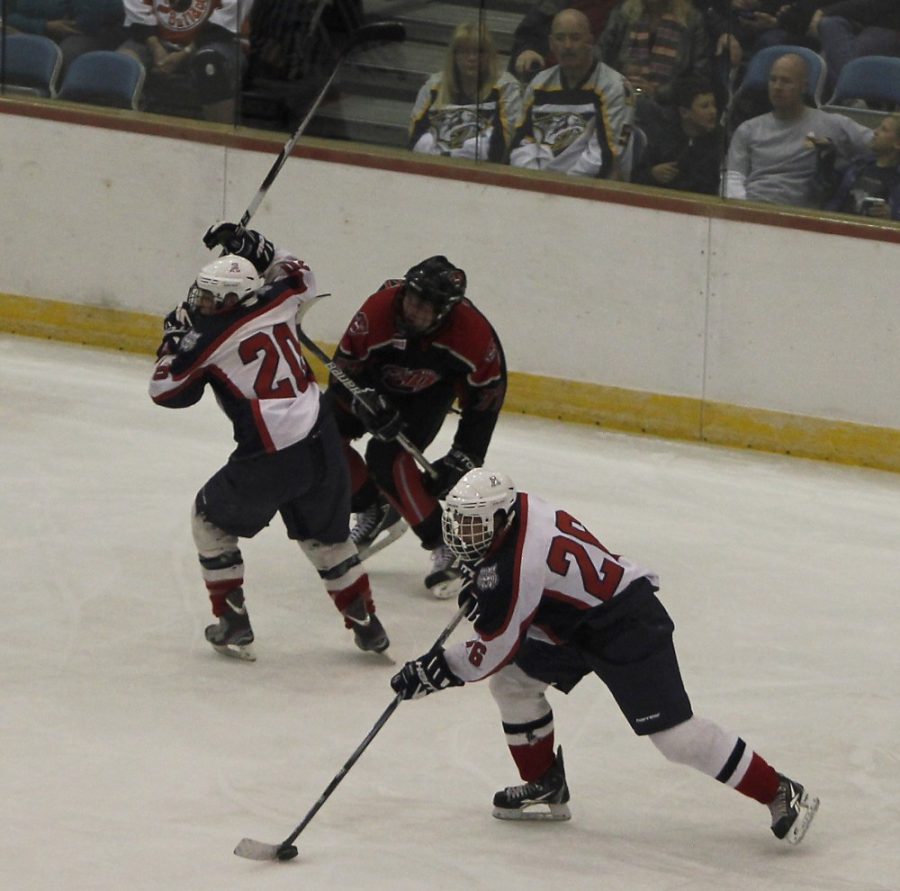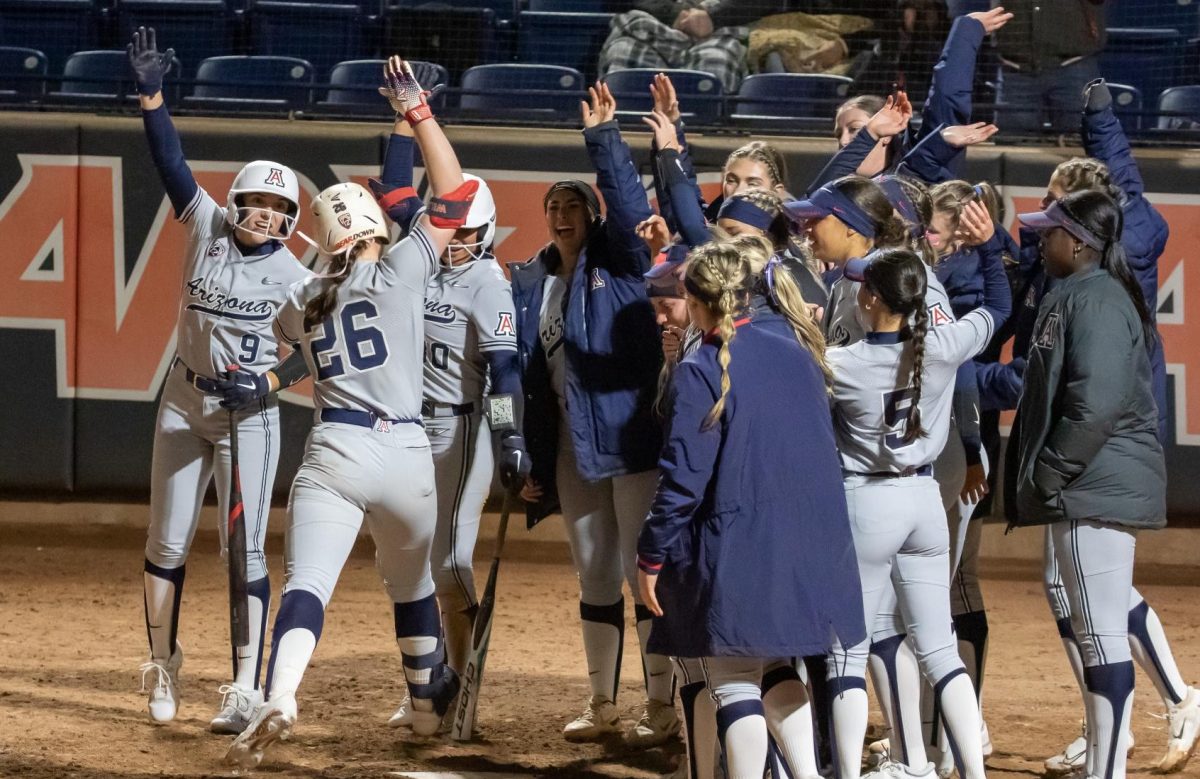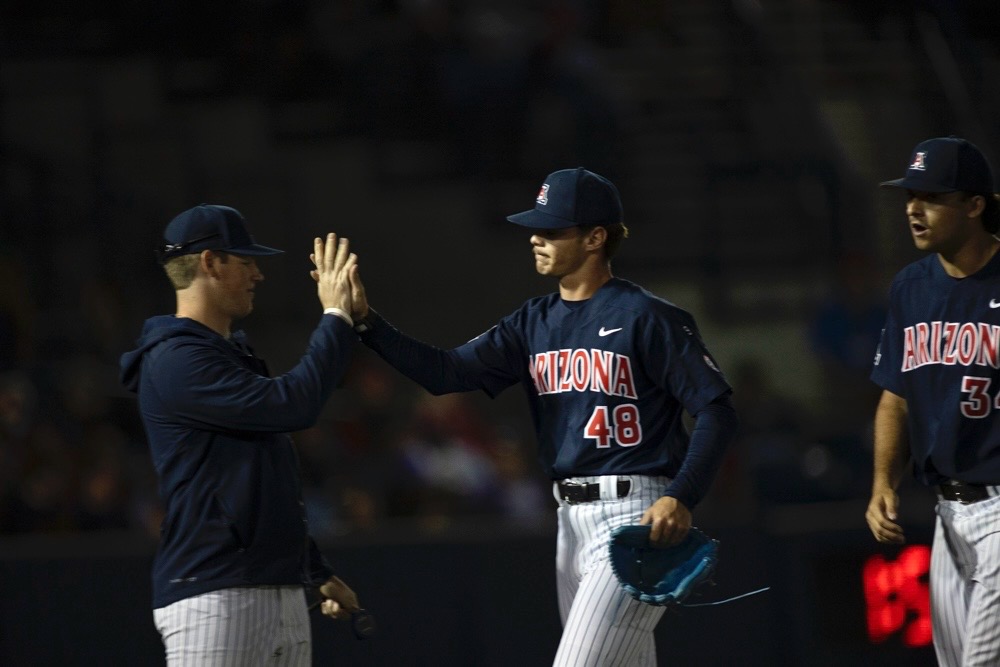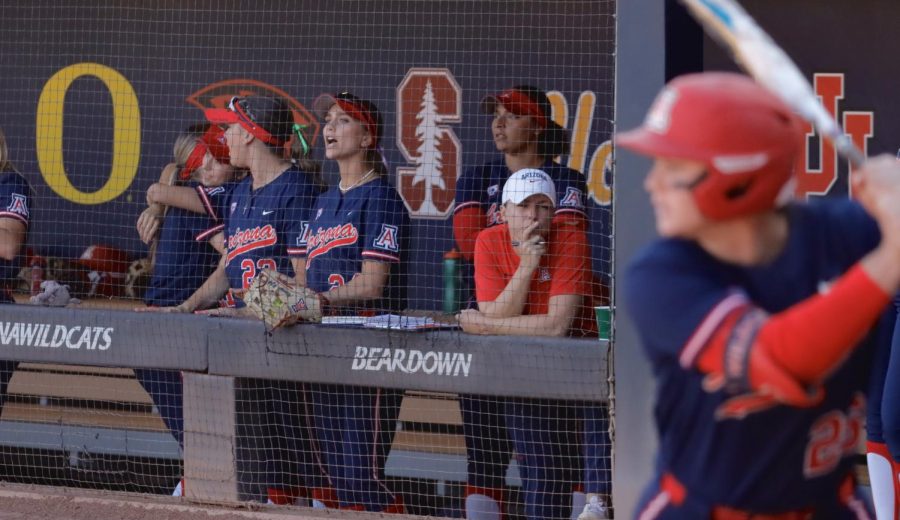For hockey players with the ability to play collegiately, the choices for playing at a university aren’t as clear-cut when compared to athletes in other sports.
The elite players are recruited and go to one of the 58 schools that have D-I hockey programs, just like football or basketball. But for the players who sit just below that level, things begin to get a little murky.
“Every hockey player grows up wanting to go NCAA Division I hockey, but that’s a tough road,” Arizona forward Jeff Wadhams said.
In addition to already being limited to less than 60 schools, head coach Sean Hogan said that most schools only have 18 scholarships to hand out, while several only have 12, and a select few, like the University of Connecticut, have none.
After the spots are filled up, the opportunity to get their education paid for is gone. Players then have to either try to walk-on to one of those D-I schools, play Division III NCAA hockey or look to some other avenue.
And that’s where Arizona jumps in.
“We’re going after the kids that are borderline NCAA Division 1 players that aren’t getting offered a scholarship,” Hogan said. “So we’re essentially competing against NCAA Division III (for players) because they do the same thing.”
Coaches can recruit players from all different places, ranging from junior hockey leagues, to prep schools, to players just coming out of high school. Hogan said he primarily looks at the junior hockey level when he recruits.
The challenges in recruiting don’t only fall to the coaches — players have a much bigger role in determining where they actually play. Potential recruits essentially search for schools that meet their own personal needs and then proceed to contact a school’s coach to broach the possibility of playing at that school.
Both Wadhams and forward Eric Watters contacted previous coach Leo Golembiewski first and then exchanged emails and information with his wife, who was running the contact phase of recruiting at the time.
For Watters, the most important part about his decision was education, so when he couldn’t find a Division III school with an engineering major, he decided to stay in-state and go to Arizona, he said.
But, just because Watters found a school that fit his criteria, it wasn’t guaranteed he’d become a Wildcat.
Since Arizona hockey is a club team, it holds tryouts every year to see who will make the roster. This forces players to decide on a school without knowing if they’ll actually be able to play there.
Players have to balance their decision between playing at the best school possible and picking one they actually have a shot at making, Watters said.
Watters came to the UA from Phoenix, so his decision didn’t come with much risk. But for someone like Wadhams, who moved from New York, or forward Dumas Maugile, who moved from London, the choice was much more difficult.
“If you do make the team … you build a good chemistry with the coach, and throughout the year you’re still trying out for the next season to show that you belong to be there,” Wadhams said. “It’s definitely a risk, but you just have to trust yourself.”
If Hogan has been contacting a player for a while, they should feel fairly safe about their spot on the team, but the lack of roster security is still an obstacle to overcome. This was especially true this last year since coach Hogan, who has an entirely different philosophy and structure of coaching, took the reins from Golembiewski.
The American Collegiate Hockey Association can’t compete with D-I when it comes to the opportunity to play professionally or the monetary advantages. While Hogan said the ACHA does offer the same opportunity to go to minor league professional teams as D-III schools do, for some the club team offers something even more important.
College hockey is more about the experience than a stepping stone to professional hockey, Watters said.
“It’s possible to move on from ACHA, but you got to work really hard at it,” he said. “If it happens, it happens, but I just want to play.”









